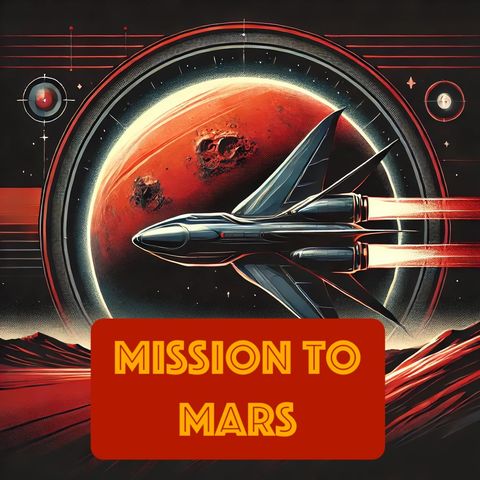"Simulated Mars Mission Provides Invaluable Insights for Future Interplanetary Exploration"

Sign up for free
Listen to this episode and many more. Enjoy the best podcasts on Spreaker!
Download and listen anywhere
Download your favorite episodes and enjoy them, wherever you are! Sign up or log in now to access offline listening.
"Simulated Mars Mission Provides Invaluable Insights for Future Interplanetary Exploration"
This is an automatically generated transcript. Please note that complete accuracy is not guaranteed.
Description
In a remarkable emulation of a Mars mission, a specialized crew spent an entire year in a simulated environment designed to mimic the isolated conditions of the Red Planet. This...
show moreSet in a controlled habitat that replicates the Martian landscape and living conditions, the crew faced various challenges, including limited resources, equipment failures, and delayed communications with mission control, simulating the up to 20 minutes it would take for messages to travel the vast distance between Mars and Earth. This delay was a crucial aspect of the simulation as it tested the crew's ability to operate independently while waiting for responses to critical queries and decisions from Earth-based teams.
The astronauts engaged in this simulation were a mix of scientists, engineers, and medical professionals, tasked with conducting experiments, maintenance of the habitat, and simulated spacewalks. Their findings have been instrumental in understanding the psychological and physical demands of long-duration space travel. Studies focused on factors like team cohesion, stress, and the overall mental health of crew members, offering vital insights that are expected to shape future training programs and mission planning.
These exercises also tested and improved protocols for health emergencies, equipment repairs, and resource allocation in an environment where resupply from Earth is not an option. Learning to deal with emergencies with limited guidance from Earth was a pivotal part of their training, enhancing decision-making skills crucial for actual Mars voyagers.
NASA and other space organizations plan to utilize the wealth of data from this simulation to refine the technologies and methodologies intended for future Mars missions. The insights gained into crew behavior and resource management are not only pivotal for the success of manned missions to Mars but also enhance our understanding of human capabilities and limitations in space exploration.
This simulation stands as an essential step toward actualizing the dream of walking on Mars, ensuring that when the time comes, the crew chosen for this historic journey is well-prepared to face the myriad challenges of interplanetary travel.
Information
| Author | QP-4 |
| Organization | William Corbin |
| Website | - |
| Tags |
Copyright 2024 - Spreaker Inc. an iHeartMedia Company
